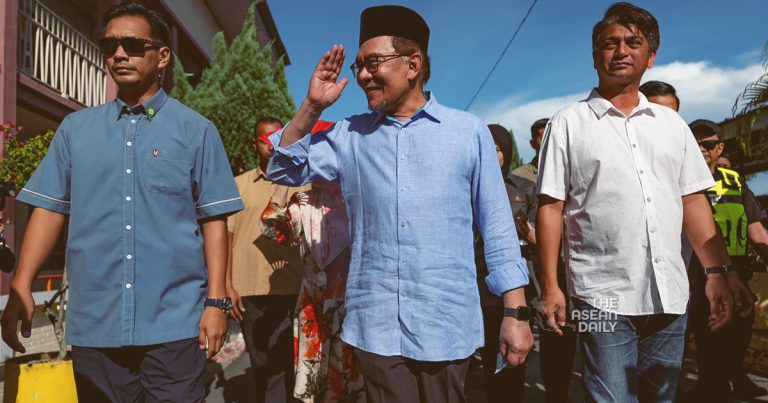31-8-2023 (KUALA LUMPUR) Malaysia has made tackling corruption a cornerstone of Prime Minister Anwar Ibrahim’s administration over the past nine months. However, the anti-graft campaign appears to be facing some challenges. While authorities have launched some high-profile raids and investigations, critics argue more needs to be done to erase decades of corruption and politically motivated interference.
It began with a spectacular raid in late July that gripped the nation. Malaysia’s anti-corruption commission, along with other agencies, swarmed the properties of a prominent entertainment promoter after weeks of surveillance. When the dust settled, they had seized huge sums of cash, gold bars, and luxury vehicles worth millions. However, this was just the beginning of a summer of shake-ups in the anti-corruption battle.
In subsequent weeks, the tax authority froze bank accounts belonging to opposition figure Hamzah Zainuddin and relatives over alleged financial irregularities. The police also took the unprecedented step of placing former Prime Minister Muhyiddin Yassin’s son-in-law and lawyer on Interpol’s wanted list for money laundering probes. It seemed the authorities meant business in rooting out graft across the board, with no one too politically connected to face scrutiny.
Nonetheless, the campaign has encountered stumbles that highlight the substantial challenges ahead. In a blow to the PM, a high court dismissed abuse of power charges linked to pandemic contract awards against Muhyiddin, ruling the prosecution case was defective. While the former leader still faces other corruption trials, it demonstrated loopholes remain. Especially concerning for many is the perception that, though talks of reform came easy as opposition, bringing real change has proven tricky in practice.
Veteran observers note Anwar faces a precarious task of pushing reform while keeping his fragile governing coalition intact. “He must satisfy supporters demanding accountability, but compromises are unavoidable in messy real-world politics if his alliance is to endure,” says analyst Manu Bhaskaran. The slow pace of tackling entrenched corruption only fuels criticism of the government as all talk. Ordinary citizens backing Anwar’s coalition grow frustrated at the lack of visible progress.
Even senior opposition figure Nur Jazlan Mohammed, a former deputy home minister, acknowledges governmental watchdogs require urgent fixing after decades under political thumb. “All agencies, including police, must cooperate as one. But weaknesses must be addressed first before the public loses faith,” he asserts. Malaysians have grown cynical seeing so few high-profile cases ever make it to court despite flashy raids.
One such case under intense scrutiny is the late July raid on celebrity events promoter Abdul Malik Dasthigeer’s business empire. A vast sum of cash, gold, and luxury vehicles were seized from his properties. However, months later he has only been released on bail pending charges. The delays only perpetuate doubts reforms can deliver real accountability.
The political dimensions have also come into focus. Leaks revealed prosecutorial opinions discouraging pursuing charges against imprisoned ex-PM Najib Razak over the 1MDB financial scandal. Similar memos involving current Deputy PM and UMNO leader Ahmad Zahid Hamid, on trial for graft, also emerged. UMNO politicians demanded intervention, arguing the cases should be dropped if memos are genuine.
However, legal experts stress disagreement between prosecutors is normal in complex high-profile cases. The Attorney General alone makes the final call, even if subordinates disagree on substance, according to former corruption panel member Walter Sandosam. “The public must understand this technicality, not make baseless accusations,” he urged.
As the anti-corruption campaign enters its second year under Anwar’s leadership, it remains beset by the very rot it aims to drain. Substantial structural changes may be needed to truly liberate watchdogs from political shackles if public faith is to recover. With each stumble, pressure grows on the Prime Minister to prove reforms are more than just an opposition slogan. Only through persistent drive against corruption across all levels of power and society, can Anwar begin to deliver the integrity most Malaysians seek.




